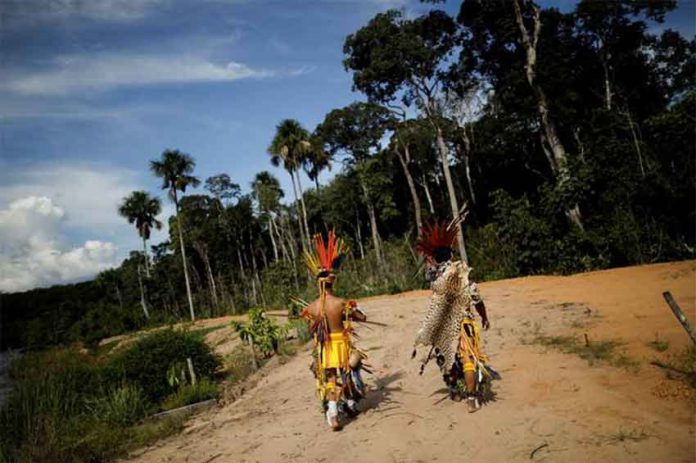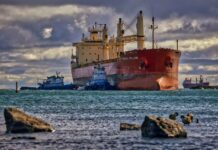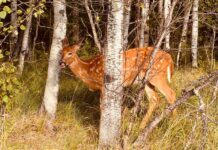
By Laurie Goering
A new EU law that aims to curb deforestation will soon force global suppliers of commodities such as palm oil, soy and cocoa to prove that their supply chains are not fuelling forest destruction.That’s good news – but not necessarily for many small-scale Malaysian palm oil farmers like Reta Lajah. After a year of hard work, her farm is certified as green and ethical, she said. But she fears many other small growers will be frozen out of the European Union market as they struggle to meet demands for detailed tracing of a product’s source, among other new requirements. Small-scale farmers currently produce about 40% of the palm oil grown in Malaysia and Indonesia – but they worry buyers trying to meet the new EU rules could instead switch to sourcing from larger plantations that have more means to show they are complying. “The biggest losers will be smallholder farmers unless they are provided assistance,” warned Danny Marks, an environmental politics and policy professor at Dublin City University in Ireland. He urged the EU to offer aid for farmers to meet the new requirements, a premium price for sustainable palm oil and a minimum quota to be bought from small-scale farmers.
Reta Lajah, an indigenous palm oil farmer on her small plantation in the village of Sungai Judah, Selangor, Malaysia, March 30, 2023. Thomson Reuters Foundation/Michael Taylor |
Building Brazil’s ‘bioeconomy’In Brazil, a similar question is being asked: How do you drive more investment to a forest-friendly economy? For centuries, families and cooperatives living in the Amazon and elsewhere in Brazil have sustainably produced products including the palm fruit açaí, rubber and pharmaceutical ingredients. But that “bioeconomy”, with its legions of small producers, including Indigenous communities, receives just a fraction of the flood of investment pouring into expanding soy and cattle farming, a major driver of deforestation. As Brazil tries to protect its fast-vanishing rainforest, reduce inequality and build a more sustainable economy, finding ways to shift investment toward expanding the bioeconomy may be the best chance to protect the Amazon and its people, experts say. “The economic benefits are larger in this sustainable system” – not least because continuing Amazon destruction will disrupt the rainfall Brazil’s cattle and soy economy depends on, said Carina Pimenta, recently named National Secretary for the Bioeconomy in President Luiz Inácio Lula da Silva’s environment ministry. “The problem is we have not promoted it as a development path. People are used to another means of production – and this is a cultural change that needs to be induced by public policy,” she said, as a non-profit she helped found to support that economy – Conexsus – won a $2.25 million prize from the U.S.-based Skoll Foundation.
An indigenous man participates in a modeling exercise run by Brazilian non-profit Conexsus in Alta Floresta, in the Amazon state of Mato Grosso, Brazil, in 2019.Conexsus/Handout Via Thomson Reuters Foundation |
Power to the (local) peopleIn Kenya, finding a sustainable development path depends in part on trusting local people to make decisions – something the country is prioritising. Climate change adaptations introduced by outsiders can end up being “maladaptations” that create more problems than they solve, as happened in Isiolo County when a water pan was built to supply year-round water for livestock in the face of worsening drought. The problem? The pan drew legions of outside herders into an area set aside as emergency drought grazing for local people, undermining their drought resilience. When the pan was replaced with a well that could be shut down when not in use – what local people wanted – the old grazing system was restored. As Kenya has “devolved” more power to county governments over the last decade, such mistakes are being avoided – a key way of saving scarce climate adaptation cash, experts say. |


%20em%202019.JPG/640w)





